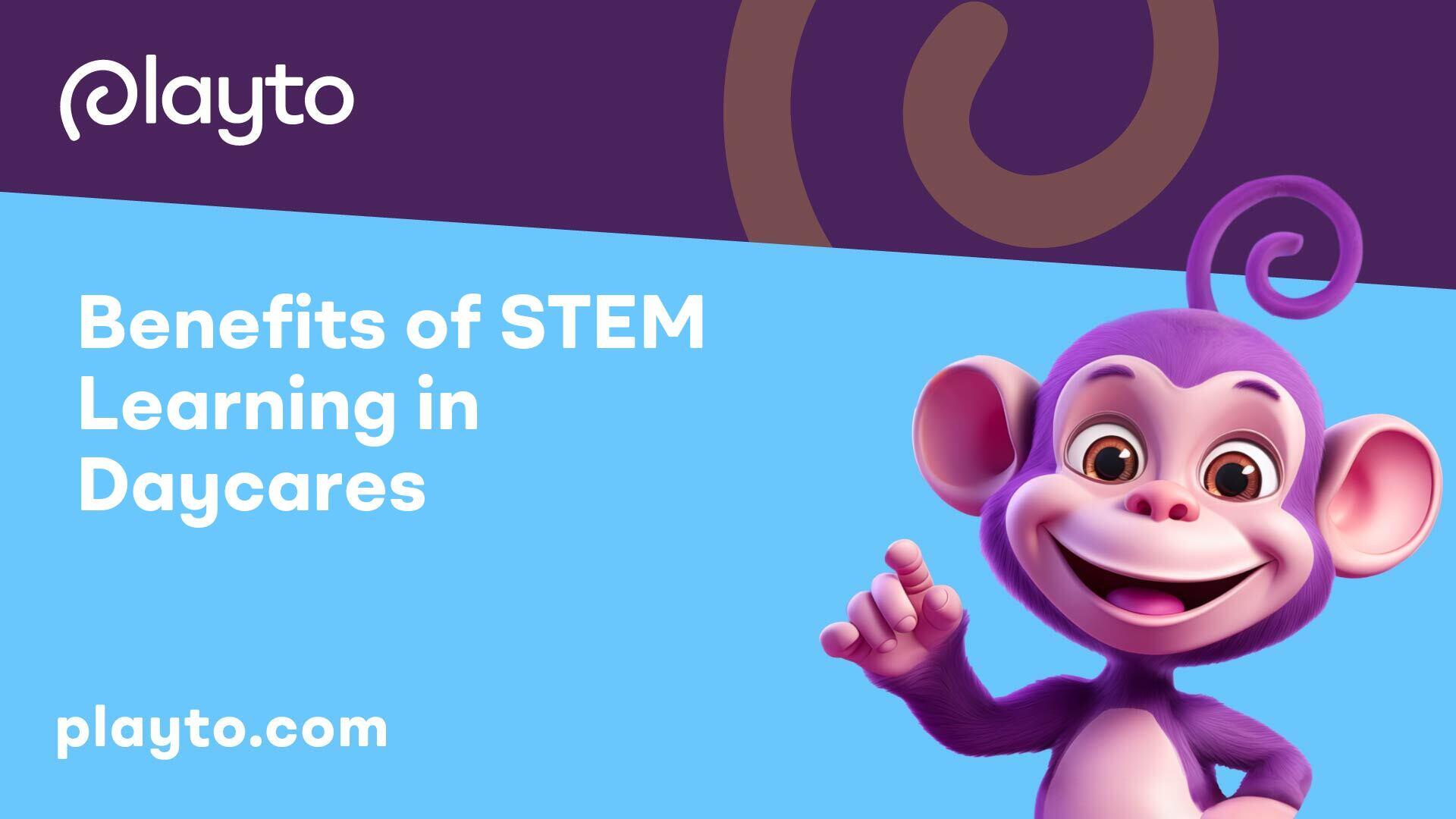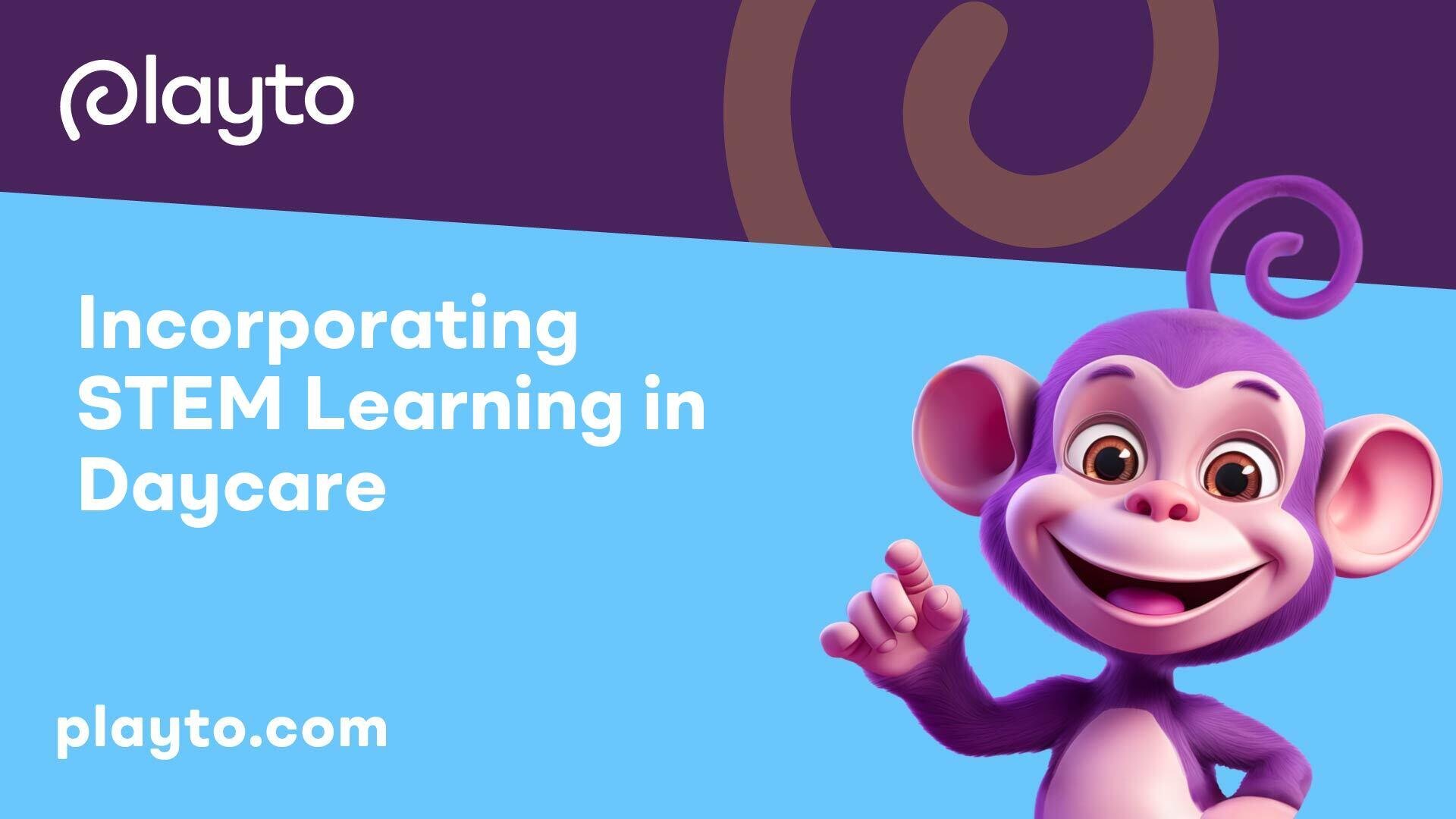
Importance of STEM in Daycares
Incorporating STEM (Science, Technology, Engineering, and Mathematics) education in daycare settings plays a fundamental role in laying a strong scientific foundation for children and enhancing their investigative skills. This approach not only fosters a curiosity for learning but also nurtures essential skills that are integral to their educational journey.
Building a Scientific Foundation
There is a growing recognition of the significance of integrating science into early childhood education to establish a sturdy foundation for future scientific comprehension and essential learning skills. By introducing young children to basic scientific concepts and principles in daycare, educators pave the way for a deeper understanding of the world around them. Through hands-on experiments and interactive activities, children start developing a scientific mindset from a tender age, setting the stage for future academic success.
Enhancing Investigative Skills
Children in daycare settings require structured engagements to foster scientific inquiry and exploration in the classroom [1]. By engaging children in prolonged scientific investigations, they are encouraged to develop a range of skills, including prediction, data collection, and pattern recognition. These activities contribute to their reflective thinking and deepen their understanding of the scientific method, nurturing a natural curiosity for discovery and exploration.
Implementing STEM learning in daycare not only makes education enjoyable and engaging but also cultivates the development of essential mathematical formulas, scientific rules, and soft skills in young learners. Through hands-on activities and project-based learning experiences, children are exposed to memorable and interactive lessons that embed mathematical concepts and scientific principles in a profound and lasting manner.
By emphasizing STEM education in the early years, daycare centers promote active learning and critical thinking, ensuring that children are well-prepared to navigate the complexities of the modern world with confidence and competence. It is through such initiatives that the seeds of innovation and discovery are sown, nurturing a generation of young minds ready to tackle the challenges of tomorrow.

Guiding Scientific Activities
In the realm of guiding scientific activities in daycare settings, the aim is to nurture a sense of wonder and curiosity in children while providing them with structured opportunities for scientific inquiry. This section focuses on two key aspects: fostering scientific inquiry and encouraging exploration.
Fostering Scientific Inquiry
Guiding children in fostering scientific inquiry involves creating an environment that encourages questioning, exploration, and investigation. According to research published in SEED Conference Papers, engaging children in prolonged scientific investigations helps develop skills such as prediction, data collection, and pattern recognition. These activities contribute to their reflective thinking and comprehension of the scientific method.
Young children are naturally inclined to engage in scientific practices, including observation, experimentation, and data analysis [3]. By fostering an environment that supports these innate tendencies, educators can lay a solid foundation for STEM learning from an early age. It is essential for early childhood educators to guide children in converting their curiosity into structured scientific activities to promote a deeper understanding of the world around them [1].
Encouraging Exploration
Encouraging children to explore their surroundings and engage in hands-on activities is crucial for stimulating their interest in STEM subjects. Encouraging exploration involves providing opportunities for children to make observations, test hypotheses, collect data, and draw conclusions.
Educators play a vital role in fostering an environment that supports and encourages children to explore, experiment, and ask questions. By promoting a culture of inquiry and curiosity, children are more likely to develop critical thinking skills and a passion for learning. Providing hands-on experiences and open-ended materials can spark children's creativity and ignite their interest in STEM fields.
By guiding scientific activities through fostering scientific inquiry and encouraging exploration, daycare settings can establish a strong foundation for children's STEM learning journey. Emphasizing the importance of curiosity, observation, and experimentation paves the way for children to develop essential scientific skills and a lifelong love for discovery and learning.

Benefits of STEM Learning in Daycares
Incorporating STEM (Science, Technology, Engineering, and Mathematics) learning in daycare settings offers a myriad of benefits for young children, aiding in their cognitive development and preparing them for future academic pursuits. Two primary advantages of STEM learning in daycares are skill development through investigations and encouraging reflective thinking.
Skill Development through Investigations
Engaging children in scientific investigations provides them with a platform to develop a range of essential skills. When children participate in prolonged scientific investigations, they learn valuable skills such as prediction, data collection, and pattern recognition. These skills not only enhance their understanding of the scientific method but also promote critical thinking and problem-solving abilities. By actively engaging in hands-on STEM activities, children develop a strong foundation for future academic success.
STEM activities in daycares also encourage collaborative reasoning and teamwork, shaping children into effective team players. Collaboration is a fundamental skill that is instrumental in various settings, whether in educational environments like robotics competitions or in professional scenarios where teamwork is crucial for successful project implementation [4].
Encouraging Reflective Thinking
STEM education in early childhood stimulates reflective thinking through engaging, project-based learning activities. These activities not only make learning fun but also enhance students' understanding of mathematical formulas, scientific principles, and soft skills. Through hands-on experiences, children engage in memorable learning moments that embed fundamental scientific rules and mathematical concepts [2].
Young children naturally possess inquisitive minds and exhibit scientific practices such as observation, experimentation, and data analysis at their developmentally appropriate level. Encouraging such practices helps lay a solid foundation for STEM learning at an early age. Additionally, the ability to explain and demonstrate the workings of a design fosters effective communication skills, which are vital in the STEM field [3].
By nurturing investigative skills and promoting reflective thinking through STEM activities, daycares play a pivotal role in shaping young minds and fostering a passion for learning and exploration in the fields of science, technology, engineering, and mathematics.
Implementing STEM Labs in Daycare Settings
For [New York](New York) daycares seeking to enhance early education through STEM (Science, Technology, Engineering, and Mathematics) learning, implementing STEM labs can provide valuable hands-on experiences for young minds. Effective STEM labs are educational spaces specifically designed to support STEM programs and prioritize the principles outlined in the National Science Foundation's STEM Education for the Future report. When incorporating STEM labs in daycare settings, two key aspects to consider are designing effective STEM spaces and promoting student-led learning.
Designing Effective STEM Spaces
Designing STEM labs in daycare settings requires thoughtful planning to create environments that foster exploration, experimentation, and collaborative learning. The physical layout of the space should be stimulating and conducive to hands-on activities. Here are some factors to consider when designing effective STEM spaces:
- Interactive Workstations: Set up stations equipped with age-appropriate STEM materials and tools that encourage children to engage in scientific inquiry and problem-solving.
- Safe and Accessible Equipment: Ensure that all equipment and materials are child-friendly, safe to use, and accessible to little hands to promote independent exploration.
- Engaging Display Areas: Create display areas to showcase children's STEM projects and experiments, fostering a sense of pride and achievement.
- Flexible Layout: Design the space to allow for flexibility and adaptability, enabling educators to customize the environment based on the day's activities or children's interests.
By designing STEM spaces that are inviting, engaging, and conducive to exploration, daycares can promote a love for STEM disciplines from an early age and lay the foundation for future learning and discovery.
Promoting Student-Led Learning
Incorporating student-led learning practices in STEM labs empowers children to take ownership of their learning journey and develop critical thinking skills. Encouraging children to drive their learning experiences fosters independence, curiosity, and a deeper understanding of STEM concepts. Here are some strategies to promote student-led learning in STEM labs:
- Inquiry-Based Activities: Design activities that prompt children to ask questions, investigate, and draw their conclusions, encouraging a sense of curiosity and discovery.
- Project-Based Learning: Encourage children to work on hands-on projects that allow them to explore STEM concepts in a meaningful and practical way, fostering creativity and problem-solving skills.
- Collaborative Problem-Solving: Create opportunities for children to collaborate with their peers, share ideas, and collectively solve challenges, promoting teamwork and communication skills.
- Reflection and Documentation: Encourage children to reflect on their experiences, document their findings, and share their insights with others, promoting self-assessment and communication skills.
By promoting student-led learning in STEM labs, New York daycares can nurture a generation of young learners who are curious, confident, and equipped with the skills needed to excel in an ever-evolving world.
Personalized Learning in STEM Labs
In the realm of incorporating STEM learning in daycare settings, personalized learning plays a vital role in nurturing young minds. STEM labs offer a unique space for learners to experience tailored access to resources, take creative risks, and embrace the concept of learning through failure. These elements are key in shaping a child's educational journey and fostering a love for science, technology, engineering, and mathematics.
Access to Resources
According to SmartLab Learning, STEM labs are designed to provide learners with personalized access to a wide array of resources, ranging from state-of-the-art equipment to interactive learning tools. By offering such diverse resources, children are encouraged to explore, experiment, and discover their interests in STEM fields. This access not only enhances their learning experience but also encourages them to think critically and creatively.
To maximize the benefits of STEM labs, it is essential for daycare centers to ensure that the resources provided are age-appropriate, engaging, and accessible to all children. By tailoring the resources to meet the needs and interests of each child, educators can create a dynamic learning environment that inspires curiosity and fosters a love for STEM disciplines.
Learning Through Failure
Embracing failure as a natural part of the learning process is a fundamental aspect of STEM education. As highlighted by Kid Spark Education Blog, making mistakes is an integral part of the Design & Engineering Process. By allowing children to experiment, make errors, and learn from them, STEM labs cultivate a growth mindset that promotes resilience, perseverance, and problem-solving skills.
STEM activities in daycare settings not only focus on academic content but also emphasize the importance of learning from failures. Encouraging children to view mistakes as opportunities for growth helps them develop the confidence to tackle challenges and approach problems with a positive attitude. This approach not only enhances their understanding of STEM concepts but also prepares them for future academic and professional endeavors.
By providing children with access to resources and promoting a culture of learning through failure, daycare centers can create enriching STEM learning experiences that empower children to explore, experiment, and innovate in a safe and supportive environment. These personalized learning opportunities lay a strong foundation for future academic success and instill valuable skills that children can carry with them throughout their educational journey.
Benefits of Incorporating STEM in Early Education
When it comes to early childhood education, incorporating STEM (Science, Technology, Engineering, and Mathematics) learning plays a vital role in shaping young minds and preparing them for future academic and professional success. Let's delve into the specific benefits of integrating STEM into early education, focusing on promoting essential life skills and fostering equitable access to STEM learning.
Promoting Essential Life Skills
Introducing STEM education at an early age lays the foundation for developing essential life skills that are crucial for children's holistic growth and development. STEM activities promote critical thinking, problem-solving, creativity, and collaboration, skills that are not only fundamental in academic settings but also in real-life situations.
By engaging in hands-on STEM projects, children learn to think analytically, evaluate information, and make informed decisions. These experiences not only enhance their academic abilities but also equip them with the confidence and skills necessary to navigate challenges and innovate in various aspects of their lives.
Furthermore, STEM education fosters skills such as adaptability, resilience, and effective communication, which are essential for success in the ever-evolving modern world. By actively participating in STEM-related activities, children cultivate a growth mindset and a passion for learning that transcends traditional boundaries.
Fostering Equitable Access to STEM Learning
An important aspect of incorporating STEM in early education is the focus on providing equitable access to STEM learning for all children, irrespective of their backgrounds or circumstances. STEM education promotes inclusivity and diversity by offering every child the opportunity to engage in stimulating and enriching learning experiences.
By integrating STEM curriculum into early childhood education, schools and daycare centers ensure that every child has the chance to explore and excel in STEM fields. This approach enables children from varying socio-economic backgrounds, ethnicities, and abilities to participate in hands-on learning activities and develop a passion for STEM subjects.
Moreover, STEM education in early childhood settings helps bridge the gap in educational opportunities, creating a level playing field for all students to thrive and succeed. By offering engaging and interactive STEM experiences to children from diverse backgrounds, educators empower them to pursue STEM-related careers and fulfill their academic potential.
In conclusion, by embracing STEM in early education and focusing on promoting essential life skills and equitable access to STEM learning, educators and caregivers can nurture a generation of young learners who are well-equipped to navigate the complexities of the future. By instilling a love for STEM subjects and fostering an inclusive learning environment, early childhood educators pave the way for children to become confident, creative, and empowered individuals ready to embrace the challenges and opportunities of tomorrow.
Encouraging STEM Identity in Children
In the realm of fostering STEM education in daycare settings, it is essential to nurture a strong STEM identity in children. This involves recognizing the natural STEM practices they engage in and empowering them to apply their knowledge and skills across various disciplines.
Recognizing Natural STEM Practices
Understanding and appreciating the natural STEM practices that children already exhibit is fundamental to developing their STEM identity. By identifying activities like exploring, questioning, and problem-solving as inherent STEM behaviors, educators can encourage children to embrace their curiosity and analytical thinking skills. Recognizing these innate tendencies helps lay the groundwork for a lifelong interest in STEM subjects.
Applying STEM Skills Across Disciplines
Encouraging children to apply their STEM knowledge and skills across different disciplines is crucial for reinforcing their understanding of STEM concepts. By integrating science, technology, engineering, and mathematics into various learning experiences, children can see the interconnectedness of these subjects and how they collectively contribute to problem-solving and innovation.
According to Kid Spark Education Blog, children benefit from STEM mentors who guide them to think like scientists and engineers. Parents can play a significant role in this by posing thought-provoking questions that challenge children's critical thinking abilities and providing hands-on STEM opportunities.
By recognizing and leveraging children's natural STEM practices while promoting cross-disciplinary application of STEM skills, educators can instill a strong STEM identity in young learners, setting them on a path towards lifelong curiosity, exploration, and innovation.
Overcoming Challenges in STEM Education
In the realm of preschool education, incorporating STEM (Science, Technology, Engineering, and Mathematics) learning can present unique challenges that educators and administrators need to address to ensure a successful implementation. Two key hurdles often faced are ensuring program consistency and addressing teacher qualifications.
Ensuring Program Consistency
One of the fundamental challenges in STEM education at daycare facilities is maintaining program consistency across different age groups and classrooms. Consistency in curriculum and teaching methods is essential to provide a coherent learning experience for all children, regardless of their background or previous exposure to STEM concepts.
To overcome this challenge, daycare centers can establish clear guidelines and standards for STEM education that are implemented uniformly throughout the institution. Regular staff training and professional development workshops can help ensure that all teachers are familiar with the STEM curriculum and teaching techniques. By fostering a culture of collaboration and shared best practices among educators, daycare centers can promote program consistency and enhance the overall effectiveness of STEM learning.
Addressing Teacher Qualifications
Another critical aspect of successful STEM education in daycares is ensuring that teachers possess the necessary qualifications and expertise to deliver high-quality instruction in STEM subjects. Educators play a pivotal role in shaping young children's attitudes and perceptions towards STEM fields, making it essential for them to have a solid foundation in STEM concepts and pedagogy.
Daycare centers can address the challenge of teacher qualifications by providing ongoing professional development opportunities for educators to enhance their knowledge and skills in STEM education. Training programs, workshops, and seminars focused on STEM topics can help teachers stay abreast of the latest developments in the field and incorporate innovative teaching strategies into their classrooms.
Moreover, collaborations with external STEM experts, such as scientists, engineers, and mathematicians, can enrich the learning experience for both teachers and students. By fostering partnerships with STEM professionals, daycare centers can expose educators to real-world applications of STEM concepts and inspire them to infuse their teaching with practical and engaging STEM activities.
By proactively addressing the challenges of program consistency and teacher qualifications, daycare centers can create a nurturing and stimulating environment that promotes a love for STEM learning among young children. Through collaborative efforts and a commitment to professional growth, educators can play a pivotal role in preparing the next generation for success in an increasingly STEM-focused world.
References
[1]: https://ecrp.illinois.edu/beyond/seed/worth.html
[2]: https://blog.acceleratelearning.com/why-is-stem-so-important-in-early-childhood-education/
[3]: https://blog.kidsparkeducation.org/blog/what-is-stem-education-and-how-do-i-teach-it-in-elementary-school-for-parents
[4]: https://www.baker.edu/about/get-to-know-us/blog/stem-benefits-in-early-education/
[5]: https://www.smartlablearning.com/what-is-a-stem-lab-guide/
